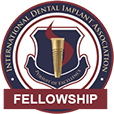How effective is whitening toothpaste?
August 13th, 2019

The American Dental Association encourages you to brush your teeth twice a day with fluoride toothpaste to prevent dental problems such as tooth decay, bad breath, sensitive teeth, and gingivitis.
Beyond these health effects, frequent brushing of your teeth with a high-quality toothpaste can keep your teeth white. If you desire a whiter smile without in-office bleaching at our Lebanon, NJ office, use of a whitening toothpaste is a great option for you.
Why Consider Whitening Toothpaste
Whiter teeth are more attractive and can help you feel confident in your smile. Having a whiter smile and greater self-assurance can send the message that you take care of yourself and are confident in your abilities.
How Whitening Toothpaste Works
Although every toothpaste has whitening properties because they all help to remove food particles from your teeth, the American Dental Association says whitening toothpaste must contain certain chemicals that help remove stains.
Unlike bleaching products, which contain carbamide peroxide or hydrogen peroxide, whitening toothpaste only cleans the enamel rather than changing the color of your teeth. To obtain the benefits of whitening toothpaste, you need to use it regularly.
The Effectiveness of Whitening Toothpaste Varies
Due to individual variations in the color of your teeth, certain people are more likely than others to achieve the desired results with whitening. Teeth that are tinted grayish are unlikely to respond well to bleaching, while brown teeth may sometimes respond, and yellowish teeth are most likely to become pearly white in response to bleaching.
If Dr. DeCasperis and our staff believe that bleaching is not a viable option for you, proper oral hygiene and the use of a whitening toothpaste are your best bets for keeping your teeth as white as possible. In addition, avoid using tobacco products, and rinse your mouth after drinking coffee.









